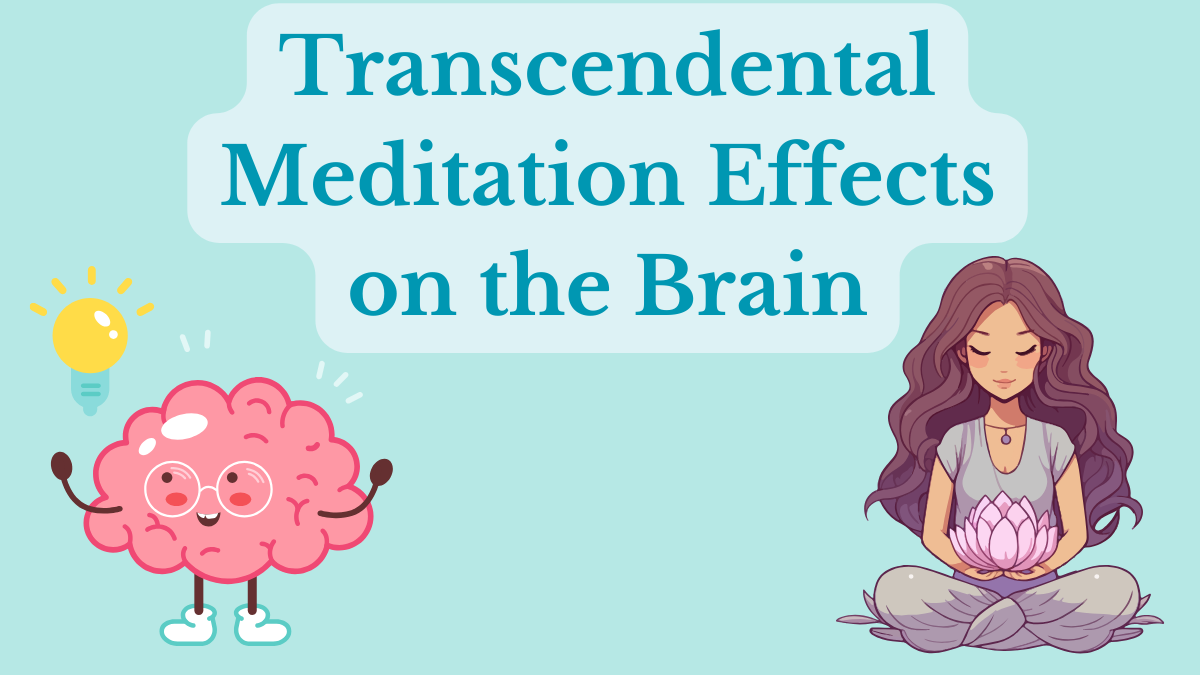Table of Contents
- Brain Function
- Transcendental Meditation
- How does transcendental meditation alter the brain?
- Improving Mental Performance
- Emotional and Psychological Benefits
- Physiological Outcomes
- Long-Term Brain Health and Neuroscience
- Meditation Practice Parameters
- Scientific Research for Transcendental Meditation Effects on the Brain
- FAQs on Transcendental Meditation Effects on the Brain
- How does Transcendental Meditation affect brain function from a neuroscience perspective?
- Can practicing Transcendental Meditation reduce stress and anxiety?
- What is functional connectivity, and how is it impacted by Transcendental Meditation?
- How does the role of a meditator differ in Transcendental Meditation compared to mindfulness meditation?
- Are there specific brain structures involved in the benefits seen with Transcendental Meditation?
Do you ever feel like your brain just won’t turn off? With everything we have to do every day, finding a calm moment can seem impossible. That’s where Transcendental Meditation comes in. It’s a simple way to help your brain relax and focus.
In this article, you’ll learn how it changes the way your brain works, making you feel more at peace and sharp. This article is full of facts that will show you why trying out Transcendental Meditation could be one of the best choices you make for your mind.
Scientists have looked into transcendental meditation effects on the brain and found some pretty cool things about what happens to your brain when you meditate.
Ready to find out how to calm your mind? Keep reading to learn about the amazing benefits of Transcendental Meditation.
Brain Function
The brain functions like a complex control center, sending and receiving signals through a network of nerves to manage everything we think, feel, and do. It processes information from our senses, directs our movements, forms our thoughts, and stores our memories, all while managing vital functions like breathing and heartbeat.
Here are examples of brain functions:
- Memory: The brain records and retrieves information, allowing us to remember past experiences, recognize faces, and recall knowledge learned over time.
- Emotion Regulation: It processes our feelings and helps us understand and respond to emotions appropriately.
- Decision Making: The brain evaluates different options and consequences, enabling us to make choices about our actions and plans.
- Sensory Processing: It interprets data from our senses, such as sight, sound, touch, taste, and smell, helping us understand and interact with the world around us.
- Motor Control: The brain sends signals to muscles to coordinate movements, from simple actions like waving a hand to complex tasks like playing a musical instrument or engaging in sports.
Brain Waves
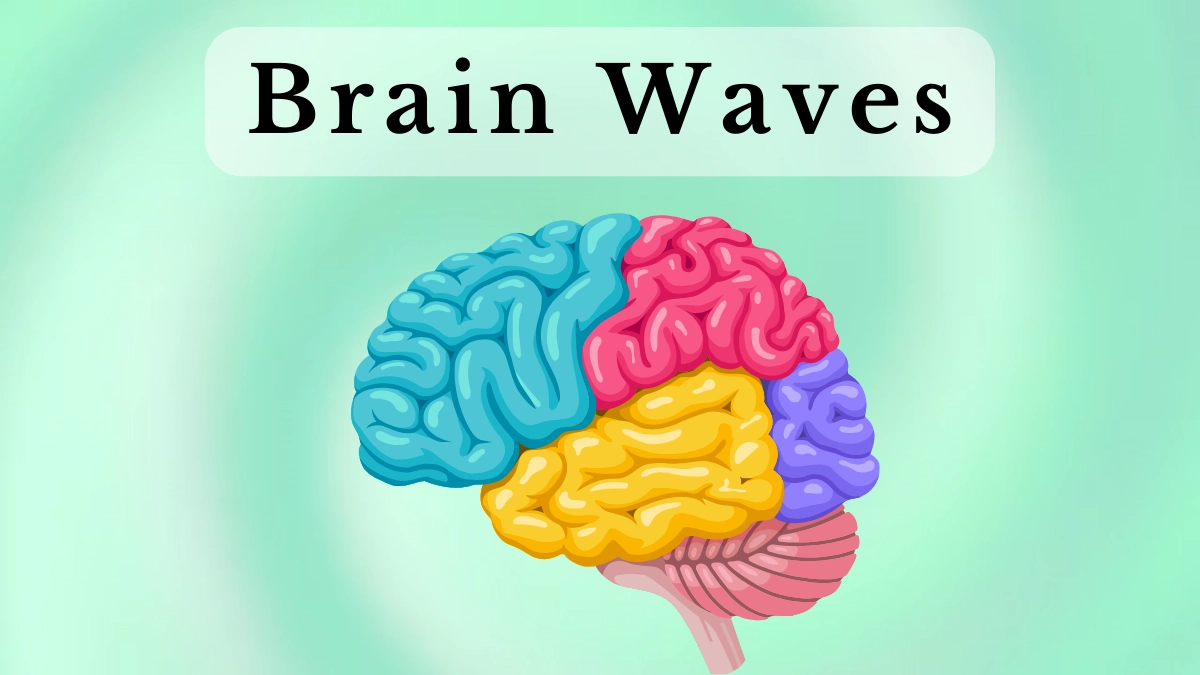
One of the most noticeable effects of TM is on brain wave patterns. Our brains are buzzing with electrical activity, and this activity can be measured in waves.
Read our full article on TM and brain waves to understand the concept deeply.
During Transcendental Meditation, there is a shift toward more coherent and organized wave patterns, particularly in the alpha frequency. This is important because alpha waves are associated with a state of calm alertness. They help the brain to process information more efficiently, which can lead to better memory, focus, and creativity
Read our article on Transcendental meditation and addiction from here.
A study highlighted on Medical News Today discusses quick changes in the brain’s activity patterns when engaging in TM.
- Alpha Waves: Predominant during meditation program, associated with calm and restful states.
Additionally, researchers observed that theta waves, which correlate with creativity and introspection, showed increased activity in individuals who regularly practice meditation.
- Theta Waves: Greater presence during TM, linked with insight and deep meditation states.
A Healthier Brain
A healthy brain functions optimally without impairment, efficiently processing information, managing emotions, and coordinating bodily movements. It maintains strong neural connections and has the resilience to recover from daily stress and protect against cognitive decline as we get old.
Transcendental Meditation has been associated with promoting a healthier brain by enhancing the connections between neurons and potentially increasing brain tissue volume in areas responsible for regulating emotions and self-control. Neuroscience News notes significant effects on the dialogue between brain structures.
- Cortical Thickness: Studies suggest TM may lead to increased cortical thickness, indicating healthier brain aging.
- Emotional Regulation: Enhanced connections in brain regions for emotional stability.
By changing neural pathways and reinforcing areas of the brain involved in cognitive and emotional processes, TM practitioners often experience improvements in memory, concentration, and emotional well-being.
Transcendental Meditation
Transcendental Meditation is a form of meditation that’s easy to learn and practice. It involves sitting comfortably with your eyes closed and silently repeating a special word or phrase, which is known as a mantra. This mantra helps you to relax and settle your mind. People usually do this meditation for about 20 minutes twice a day.

It’s a quiet time for yourself where you let go of all the busy thoughts and just be calm. Many folks who practice TM say it helps them feel less stressed and more focused. It’s not tied to any religion or belief system, so anyone can try it. People all over the world, including students, business people, and celebrities, use this amazing meditation technique to find peace and clarity in their lives.
Spiritual Benefits of Transcendental Meditation
Transcendental Meditation offers numerous spiritual benefits that contribute to a person’s overall sense of well-being and inner peace. Here’s a concise table outlining some key spiritual benefits supported by practitioners’ experiences and various studies:
| Spiritual Benefit | Description |
|---|---|
| Enhanced Self-Awareness | Helps individuals become more attuned to their inner selves, promoting a deeper understanding of personal thoughts and feelings. |
| Increased Mindfulness | Regular meditation increases presence at the moment, allowing for a greater appreciation of life’s experiences. |
| Inner Peace | Reducing stress and anxiety facilitates a state of calm and tranquility within the mind. |
| Connection to the Universe | Many practitioners report a heightened sense of unity with their surroundings and a feeling of oneness with the universe. |
| Spiritual Growth | Catalyze spiritual development, encouraging compassion, empathy, and a sense of purpose. |
These spiritual benefits are subjective and can vary from person to person. However, they are frequently cited as significant positive outcomes of maintaining a regular practice.
How Long Does It Take to See the Benefits of TM?
The benefits can often be noticed within a few days or weeks of consistent practice. Regular practitioners may experience reduced stress, improved sleep, and increased clarity of mind within this timeframe.
Is TM Better Than Regular Meditation?
While TM is a form of meditation, it is distinctive in its method and outcomes. There are studies suggesting this meditation is more effective than other forms of relaxation or meditation practices in certain aspects, such as reducing anxiety and regulating blood pressure. However, experiences and benefits can vary widely among individuals.
How does transcendental meditation alter the brain?
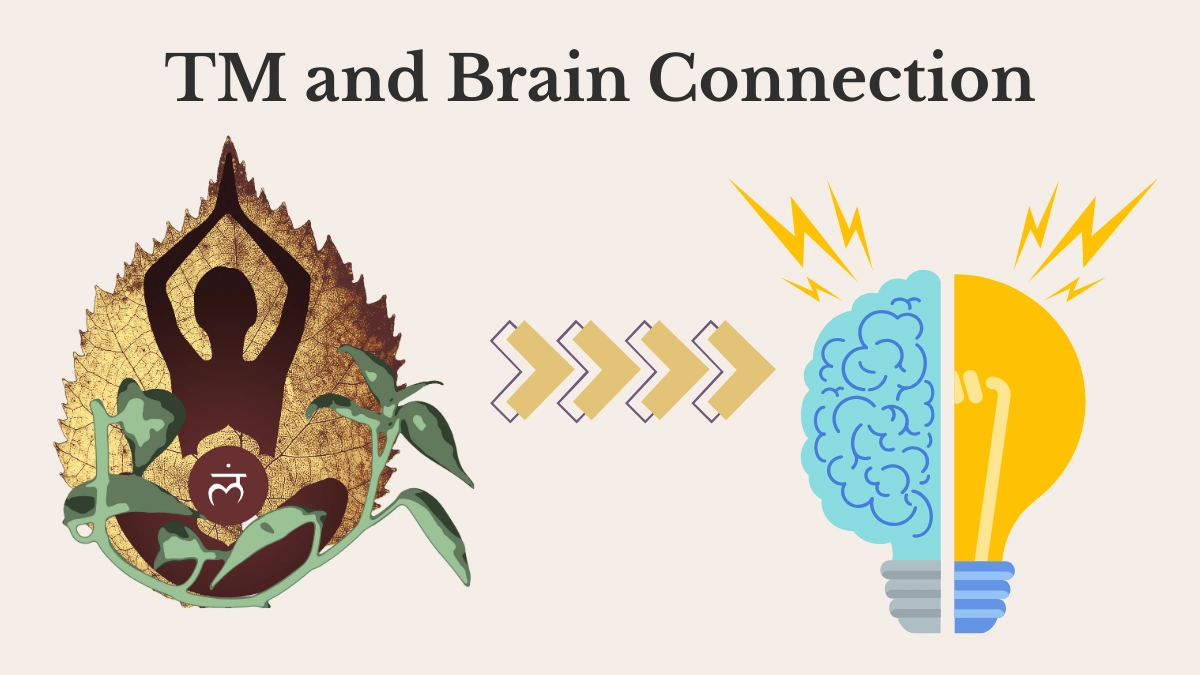
Transcendental Meditation has been researched extensively for its impact on brain health and function. Studying these effects provides insights into how this practice can benefit individuals mentally and physiologically.
What does Transcendental Meditation do to the brain?
Transcendental Meditation alters the brain by changing its electrical activity, particularly increasing alpha wave coherence, which is associated with relaxation and alertness.
Practitioners of TM often experience increased connectivity between brain regions, which may lead to enhanced cognitive functions. Studies suggest TM supports mental health, highlighting its role in positively altering brain structure and function.
Brain Wave Modulation
Transcendental Meditation has a notable effect on brain wave frequencies, particularly on Alpha waves, which are associated with relaxed mental states. An increase in Alpha wave activity can indicate a state of calm and reduced stress.
Can Transcendental Meditation build new neurons in the brain?
While direct evidence of TM-inducing neurogenesis (new neuron creation) is limited. But regular Transcendental Meditation can lead to changes in neuroplasticity, the brain’s ability to form new neural connections.
This brain’s ability to change and adapt potentially fosters new neural connections over time and potentially results in improved memory, learning ability, and emotional regulation.
What happens to your brain during Transcendental Meditation?
During TM, there is often a marked decrease in beta wave activity, signifying reduced engagement with the immediate environment and a decline in active, task-oriented thinking. This shift allows the brain to enter a deeply relaxed state.
Improving Mental Performance
Transcendental Meditation is linked to enhanced cognitive abilities. Studies suggest TM can lead to improved concentration and potentially enhance memory function.
Concentration and Focus
Individuals who practice TM regularly report increases in their ability to concentrate on tasks without succumbing to distractions. Research corroborates these claims, with a study indicating that even a few months of TM practice can lead to positive effects on psychological well-being, closely associated with measurable changes in the brain.
Does TM improve memory?
There’s evidence suggesting TM may improve memory. Researchers argue that meditation practices, including TM, can induce enhancements in several cognitive abilities essential for memory, such as the monitoring faculty that helps detect mind wandering and the ability to redirect focus to a selected object. The National Center for Biotechnology Information provides insights into these enhanced cognitive functions.
Emotional and Psychological Benefits

Transcendental Meditation offers measurable benefits for emotional and psychological well-being. Studies suggest it can lead to reduced stress levels and help regulate symptoms of anxiety and depression.
Stress Reduction
TM is associated with a decrease in the production of stress hormones. Research indicates that regular practice can lead to a state of relaxation and a reduction in stress markers. For instance, Medical News Today reports quick changes in the brain consistent with decreased stress.
Anxiety and Depression Regulation
Individuals who practice TM may experience a notable decline in the severity of anxiety and depression symptoms. Verywell Mind highlights its effectiveness in minimizing anxiety, aiding stress management, and contributing to overall emotional stability.
Physiological Outcomes
Transcendental Meditation has been scientifically observed to yield specific physiological benefits, particularly in the cardiovascular system and sleep quality.
Blood Pressure and Heart Rate
Scientific studies indicate that the practice of TM can lead to reductions in blood pressure. A randomized controlled trial highlighted the effects of TM on heart rate, with participants showing a decreased heart rate after consistent meditation practice. These changes are indicative of a more relaxed state which can have long-term health benefits.
Sleep Quality Improvement
Improved sleep quality is another significant benefit linked to Transcendental Meditation. This technique has been known to aid in faster sleep onset and deeper sleep patterns. Investigations like the ones detailed by Neuroscience News associate TM with reduced anxiety, which often correlates with better sleep experiences. This indicates a profound impact on overall well-being as sleep is fundamental to human health.
Long-Term Brain Health and Neuroscience
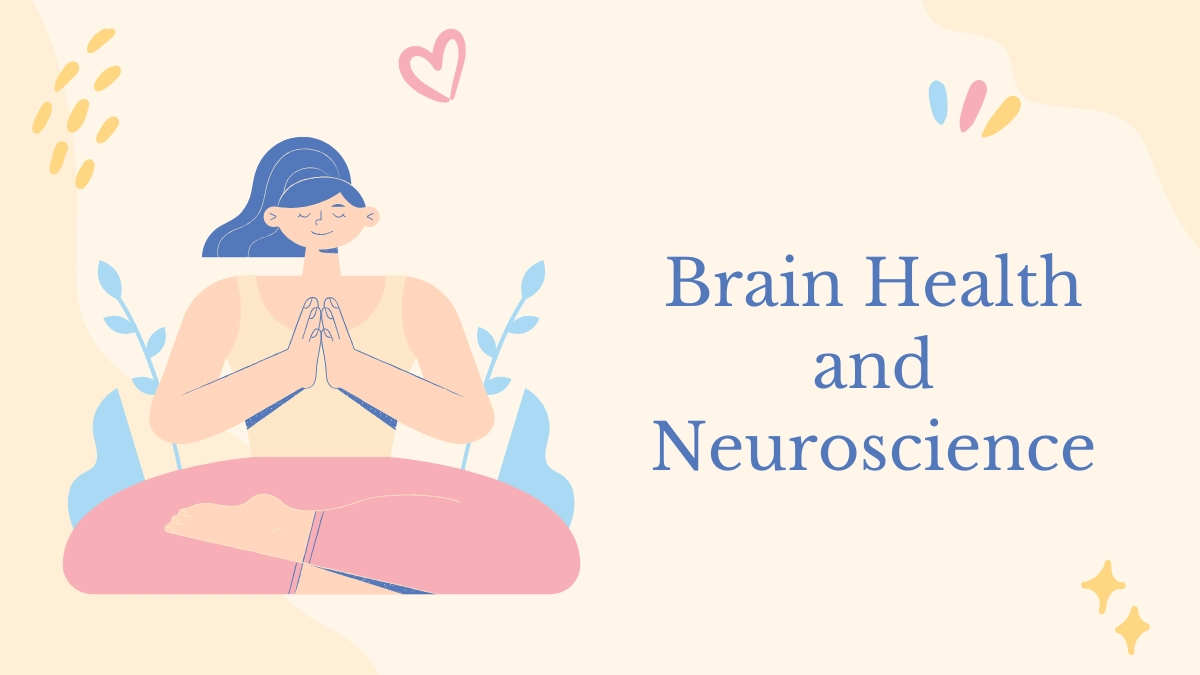
Research has highlighted the potential for Transcendental Meditation to support long-term brain health, specifically addressing concerns related to aging, cognitive function, and the likelihood of neuro degenerative diseases.
Aging and Cognitive Decline
As individuals age, their brain’s structure and function can change, often leading to cognitive decline. Studies suggest that regular practice of TM might slow this process, enhancing brain plasticity and cognitive resilience. A consistent meditation routine has been linked to better memory maintenance and improved executive function over time.
What are the long-term effects of Transcendental Meditation?
Long-term effects of TM have been the subject of research examining its impact on the brain. One of the key findings is a reduction in stress-related hormones, which can have detrimental effects on both the structure and functioning of the brain. Furthermore, long-term TM practitioners have exhibited thicker cortical regions related to attention and processing sensory input.
Is there a downside to Transcendental Meditation?
While TM is generally considered safe, it is crucial to approach it with realistic expectations. Some individuals may experience discomfort when confronting thoughts and emotions during meditation sessions. Additionally, while this meditation may support mental health, it should not replace traditional treatments for those with existing conditions.
Does meditation have a connection with neuroscience?
Neuroscience is all about understanding our brain and nerves, which are like the control center for everything we think, feel, and do. It’s like being a detective, but for our minds, figuring out how different parts talk to each other and what happens when things go wrong.
Meditation is like a workout for the brain. It’s a simple practice that can make big changes in how we handle stress and stay sharp. By studying meditation, scientists in neuroscience can see it helping to calm our thoughts and improve how well our brain works.
Neuro Degenerative Disease Resistance
Evidence suggests that TM may offer protective benefits against neuro degenerative diseases like Alzheimer’s. The practice has been associated with enhanced cerebral blood flow and the stabilization of neural networks, which can deteriorate in such diseases. Hence, this meditation might be a complementary approach to reducing the risk or delaying the onset of neuro degenerative conditions.
Meditation Practice Parameters
When integrating transcendental meditation into one’s routine, the effectiveness can depend greatly on certain key parameters of practice, including the duration and frequency of meditation sessions as well as the precision with which the technique is employed.
Optimal Duration and Frequency
An individual’s meditation schedule should be consistent and tailored to fit their daily routine. Research has shown that for transcendental meditation, two sessions per day, about 20 minutes each, yield measurable benefits. These beneficial effects on brain functioning are noticeable when practitioners maintain this frequency over some time. Consistency seems to be more important than the length of each session.
Technique Refinement
The practice of transcendental meditation relies on the use of a specific mantra and a precise technique. Continuous refinement of the transcendental meditation technique is necessary to ensure that individuals are meditating correctly and reaping the potential benefits associated with the practice. Proper instruction from a qualified teacher can greatly enhance the effectiveness of the meditation. Regular check-ins and technique optimizations can help maintain and even improve the meditation experience.
Scientific Research for Transcendental Meditation Effects on the Brain

In this section, we focus on the scientific research and its findings surrounding TM and its impact on the brain. Discover the evidence that highlights how regular meditation practice can lead to significant changes in brain activity, potentially enhancing cognitive abilities and emotional well-being.
- Reductions in perceived stress following Transcendental Meditation practice are associated with increased brain regional connectivity at rest
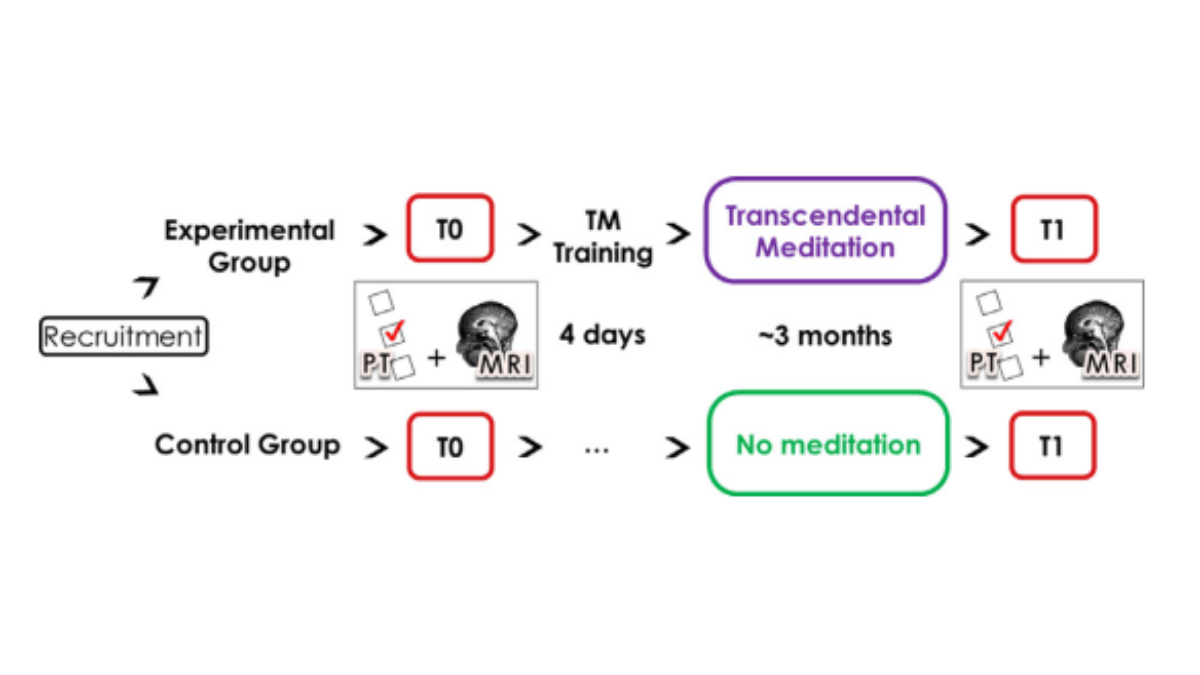
- The study looked at how practicing Transcendental Meditation for 3 months could change the brain and reduce stress and anxiety.
- It involved 19 people who did TM and 15 who did not, checking their brains with MRI scans and stress levels before and after the 3 months.
- After 3 months, only the TM group felt less anxious and stressed, and this matched with increased brain activity in areas linked to relaxation and self-awareness.
- The TM group showed stronger connections between brain regions involved in internal thought and awareness, but there were no changes in the brain’s physical structure.
- The average time spent on TM was about 30 hours over the 3 months, but the exact time varied, so results should be looked at with a bit of caution.
- These early results suggest that even a short period of TM can lead to positive mental effects and specific changes in brain activity.
2. Effects of Transcendental Meditation practice on brain functioning and stress reactivity in college students
- The study tested if Transcendental Meditation could improve brain function and reduce stress in 50 college students.
- After 10 weeks, students who practiced TM showed better brain function, felt less sleepy, and were quicker to get used to loud noises compared to students who didn’t practice.
- The TM group maintained calm responses even during stressful times, like final exams, suggesting TM helped them handle stress better.
- TM seemed to improve the connection and communication between different parts of the brain, which could help with self-control and flexibility.
- This was the first study to randomly assign college students to either start TM right away or wait, showing that it can benefit typical college students, not just those at a university where meditation is part of the curriculum.
- The positive changes in brain function and stress response from meditation practice were similar to results from previous studies, supporting the idea that TM can be good for college students’ mental health and brain performance.
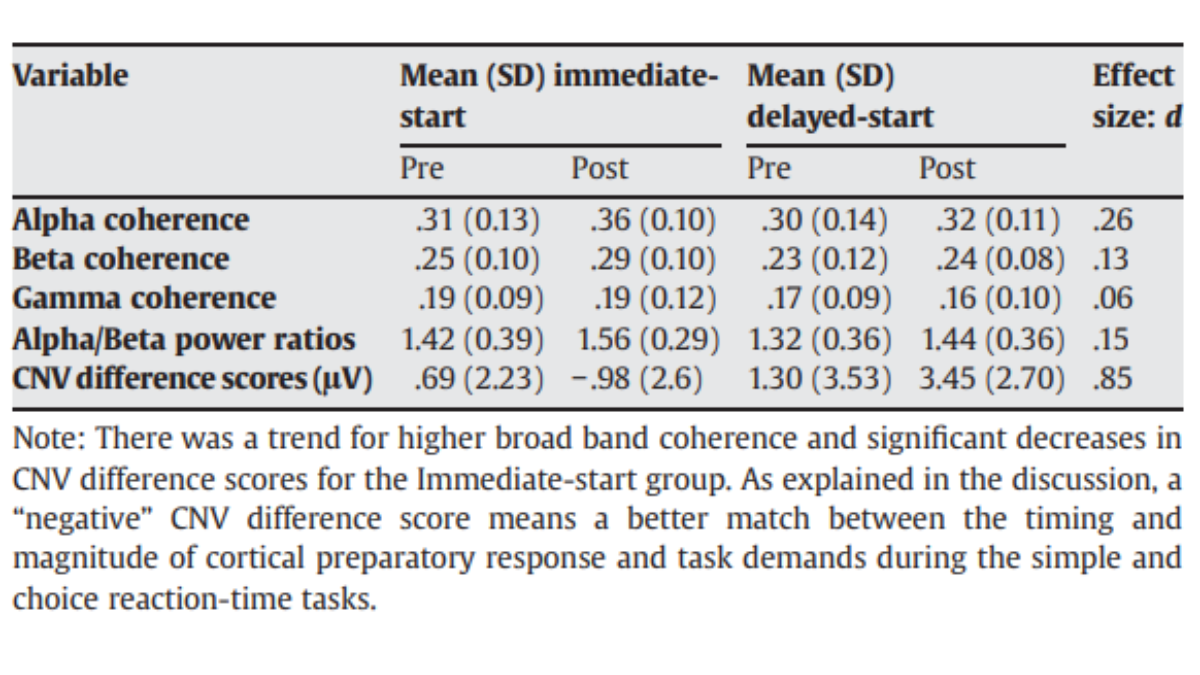
References:
- Giulia Avvenuti, Andrea Leo, Luca Cecchetti, Maria Fatima Franco, Frederick Travis, Davide Caramella, Giulio Bernardi, Emiliano Ricciardi, Pietro Pietrini, Reductions in perceived stress following Transcendental Meditation practice are associated with increased brain regional connectivity at rest, Brain and Cognition, Volume 139, 2020, 105517, ISSN 0278-2626, https://doi.org/10.1016/j.bandc.2020.105517.
- Travis, Frederick & Haaga, Dave & Hagelin, John & Tanner, Melissa & Nidich, Sanford & Gaylord-King, Carolyn & Grosswald, Sarina & Rainforth, Maxwell & Schneider, Robert. (2008). Effects of Transcendental Meditation practice on brain functioning and stress reactivity in college students. International Journal of Psychophysiology: official journal of the International Organization of Psychophysiology. 71. 170-6. 10.1016/j.ijpsycho.2008.09.007.
FAQs on Transcendental Meditation Effects on the Brain
How does Transcendental Meditation affect brain function from a neuroscience perspective?
It positively influences brain function by enhancing neural pathways and promoting functional connectivity. Neuroscience research shows that regular meditators often experience improved cognitive performance and emotional regulation.
Can practicing Transcendental Meditation reduce stress and anxiety?
Yes, It has been shown to significantly reduce stress and anxiety levels. It does so by calming the mind and altering the brain’s response to stress, as evidenced by various neuroscience studies.
What is functional connectivity, and how is it impacted by Transcendental Meditation?
Functional connectivity refers to the synchronized activity between different areas of the brain. TM strengthens this connectivity, leading to more efficient brain function and enhanced mental clarity.
How does the role of a meditator differ in Transcendental Meditation compared to mindfulness meditation?
A meditator uses a mantra to transcend thought, which can lead to deep rest and a unique state of consciousness, different from the present-focused awareness cultivated in mindfulness meditation.
Are there specific brain structures involved in the benefits seen with Transcendental Meditation?
Yes, This meditation has been associated with increased activity and development in key brain structures, such as the prefrontal cortex and the hippocampus, which are involved in executive function and memory.


